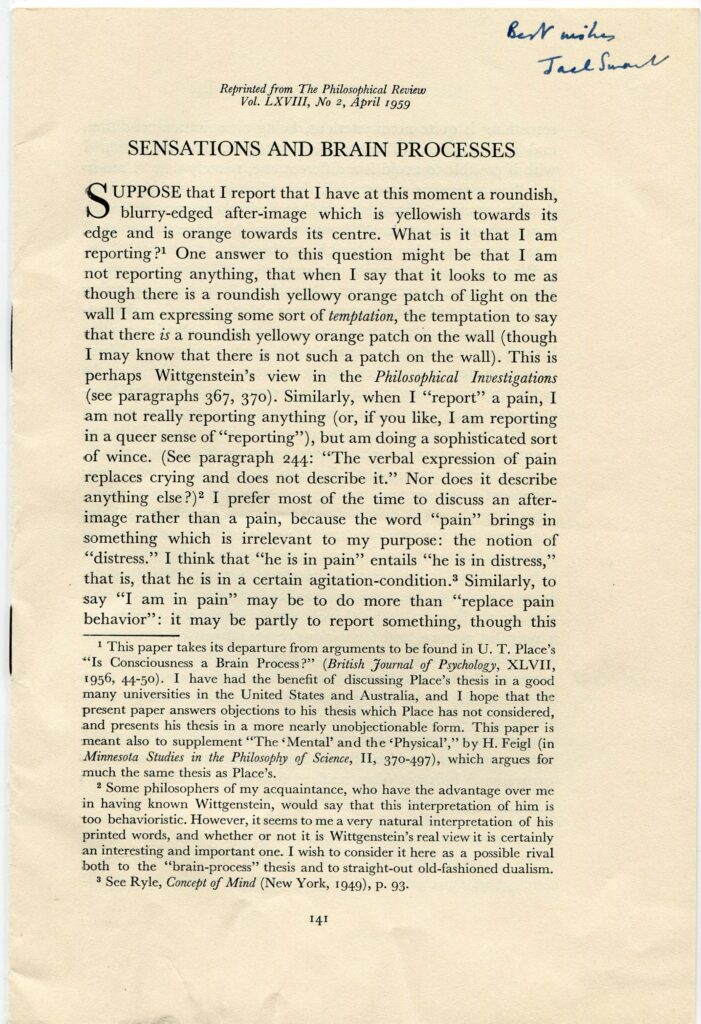Jack Smart (1920 – 2012) was one of the great Australian philosophers of the twentieth century, and this is his most famous paper which changed philosophy of mind forever. It puts forward his ‘type-identity’ theory of mind — that consciousness and sensations are nothing over and above (i.e. are identical with, or precisely the same as) physical processes in the brain. Invariably included in any collection of mind-body problem papers, it is now part of the canon; along with U.T. Place and David Armstrong, Jack Smart brought what was once ‘the Australian heresy’ into the philosophical mainstream.
‘By the time ‘Sensations and Brain Processes’ came out in 1959, Smart had been publishing regularly for ten years. However, it was this paper which made his name and for which he is still best known. Its impact was such that physicalism became almost immediately the central topic of debate in philosophy of mind. Not only that, but it won through to become the orthodoxy it is today. Very few philosophy papers have had such a major effect’ (Dictionary of Twentieth-Century British Philosophers, Thoemmes Press, 2005).

